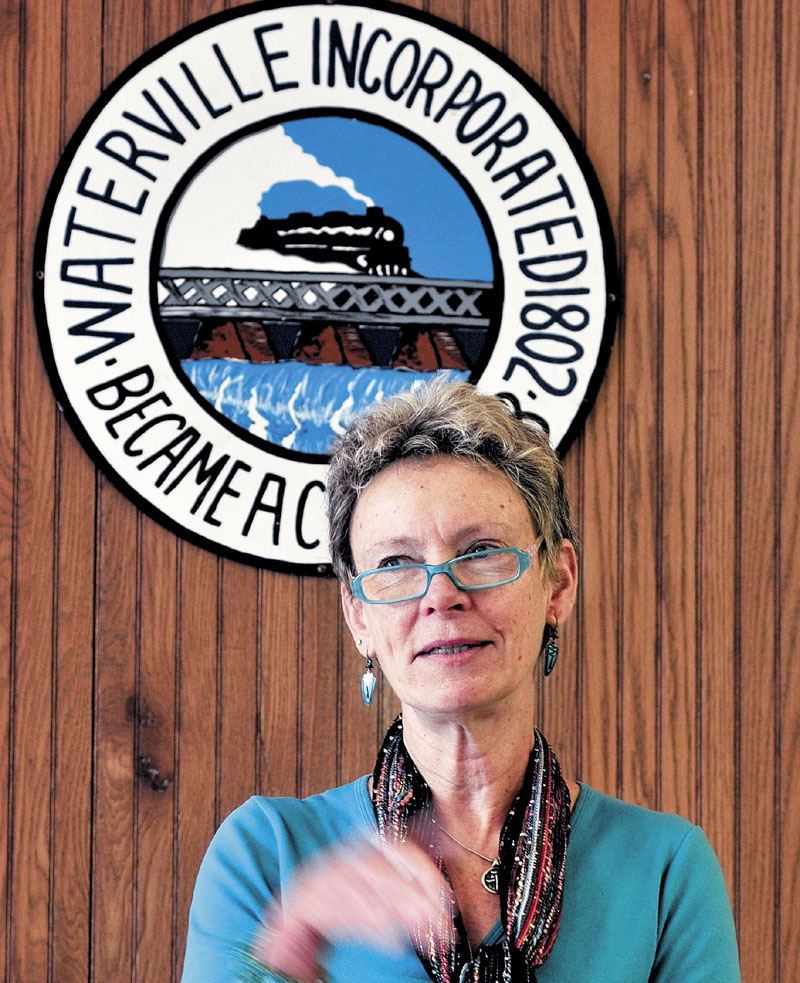AUGUSTA — Mayor William Stokes said cities and towns will be forced to raise property taxes if the Legislature approves Gov. Paul LePage’s proposal to eliminate state revenue sharing payments for two years.
In the new $6.3 billion two-year budget released Friday, LePage is proposing to save nearly $200 million over two years by suspending the payments. Cities and towns receive a percentage of all income and sales taxes collected.
“They’d like us to raise property taxes by how much?” Stokes said Friday. “We have no other source of revenue except through the property tax. It’s a way of shifting costs to the most regressive form of taxation the state has, the property tax.”
Three years ago, Augusta received $2.7 million a year in revenue sharing, a number that dropped to $1.6 million when the state cut the funding last year, said City Manager William Bridgeo. The elimination of that money, coupled with other changes proposed by LePage, will make it hard for cities and towns to prepare budgets that cover even basic city services, he said.
“It potentially poses a horrible dilemma for the mayor, city council and city staff,” he said.
Waterville Mayor Karen Heck could not be reached for comment late Friday afternoon, but in an August opinion piece published in the Morning Sentinel, Heck wrote that local property tax bills had gone up because the state cut revenue sharing. Last year, the state sent cities and towns 3.5 percent of taxes collected, instead of 5.1 percent, which meant a loss of $880,000 to Waterville, she wrote.
“The state government has diverted revenue sharing money into the general fund because Maine is experiencing a budget crisis and no one will talk about increasing taxes,” she wrote.
State Finance Commissioner Sawin Millett said eliminating the payments for two years was the only way the state could balance the budget. He said the governor is hopeful that at least some of the $16 million in undedicated funds that are part of the budget could be put toward revenue sharing.
“In this instance, we can’t share revenues that are in dramatic decline,” he said.
Democrats said the revenue sharing proposal is just one piece of the budget that will have a negative impact on cities and towns. The governor is also proposing to require local schools to pick up half the cost of current teacher retirement costs, which amounts to $14 million. Other cuts to school funding, and tax cut programs, bring the total hit to cities and towns to $400 million over the two-year budget, said House Majority Leader Seth Berry, D-Bowdoinham.
“Clearly there is a massive tax increase for all Mainers,” he said.
Senate Majority Leader Seth Goodall, D-Richmond, said cities and towns are already frugal, and described the proposal as “unprecedented in history.”
“This is a major, major budget concern for our communities and our homeowners,” he said.
The budget also proposes to eliminate 200 state jobs, only 12 of which are filled. Maine State Employees Association Executive Director Chris Quint said the budget also continues a freeze on merit and longevity pay.
“They are eliminating the positions, but the work does not go away,” he said.
While Republicans said they too are concerned about cuts to revenue sharing, they emphasized that the budget as proposed by LePage is only a starting point.
Assistant Senate Minority Leader Roger Katz, R-Augusta, said as a former mayor of Augusta, he understands the importance of state funding to cities and towns.
“It’s easy to say I’m against it, but those of us who appreciate the importance of revenue sharing need to come up with a concrete alternative,” he said.
He compared Friday’s release of the budget to the opening kick-off at a football game, with blocking and tackling yet to occur in the Appropriations Committee.
Rep. Dennis Keschl, R-Belgrade, a former town manager and current member of the Appropriations Committee, said he didn’t anticipate a two-year suspension of revenue sharing payments.
“It’s certainly shocking,” he said. “We’ll hear all kinds of input, outcries. It’s a very difficult budget.”
Susan Cover — 621-5643
scover@mainetoday.com
Send questions/comments to the editors.




